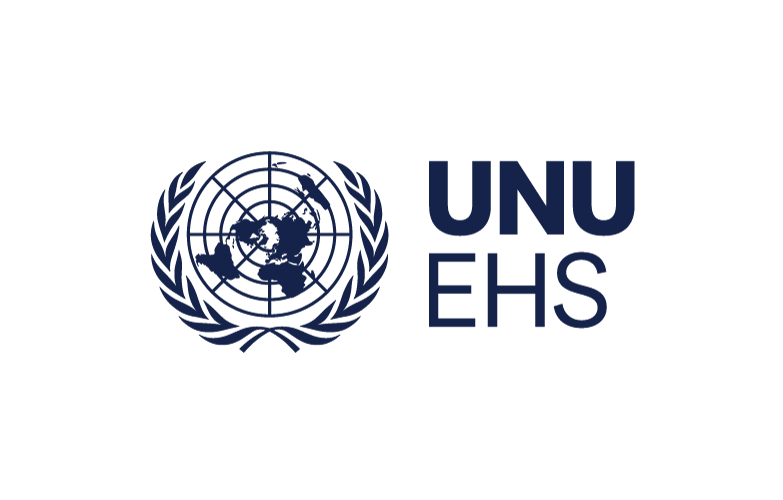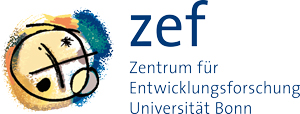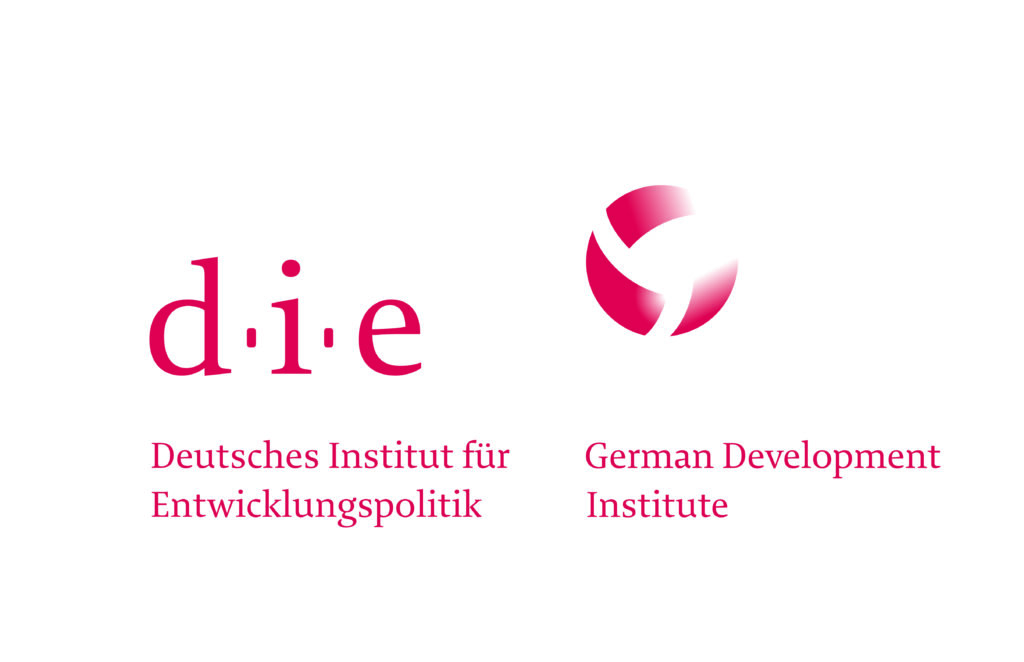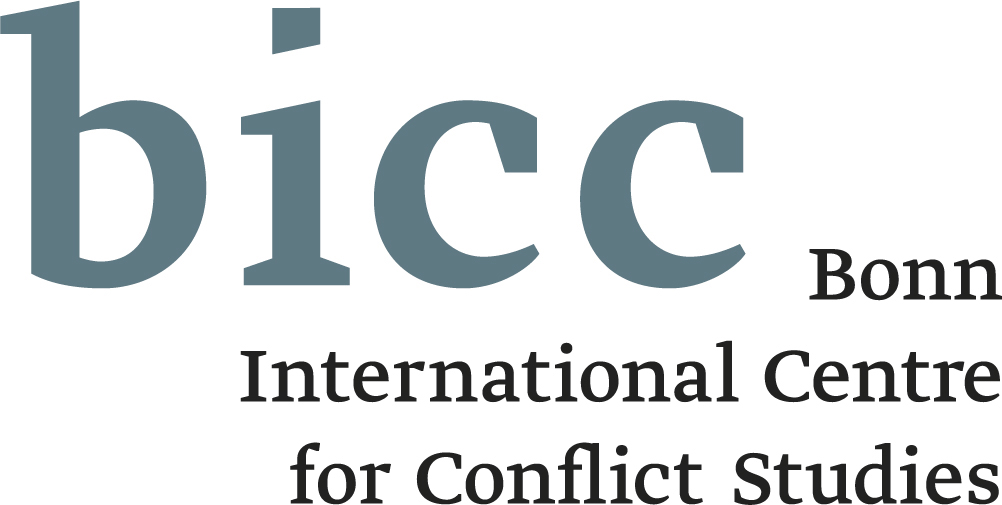Training and Education
The partner institutions of the Bonn Alliance for Sustainability Research provide a number of short-term training, doctoral and study programs and capacity building in the area of sustainable development. This website gives a brief overview of this provision through a selection of programs provided independently and jointly by the partner institutions of the Bonn Alliance.
Bachelor’s Degree Programs
The Sustainable Social Policy bachelor’s degree program (B.A.) introduces its students to the complete range of social policy issues relevant to the Federal Republic of Germany. Poverty and prosperity, educational opportunities, social injustice, the social system, pensions, health insurance, the right of co-determination, elections or the generational contract are just a number of the topics covered on the basis of up-to-date research findings. The degree program is run in cooperation with the University of Bonn and University of Cologne.
Master's Degree Programs
The current pandemic exposes the relevancy of sustainable social protection systems for everyone. Social Protection means protecting our most vulnerable members of society, adapting our social systems to crisis and eradicating poverty worldwide. Seeing the benefits, we have proactively developed an interdisciplinary master’s programme, which will provide you with the tools to analyze, design and manage social protection systems. The mix of face-to-face and online classes gives students the opportunity to build an international network.
The English-language MBA degree program is aimed at international applicants with professional experience who wish to extend their management skills through the study of an academic, interdisciplinary and intercultural degree program which prepares them for management roles in NGO or the CSR sectors.
This dual award master’s degree program gives its students the opportunity to gather international experience and study at two universities: the University of Bonn and the Universidad Nacional de San Luis, Argentina. Graduates from the program are awarded two degree qualifications, a master’s in electronics with a specialization in electrotechnical system development and a Maestría en Diseño de Sistemas Electrónicos aplicados a Ia Agronomía. Students study the application of electrical engineering methods and techniques to agricultural science with the aim of promoting sustainable and resource-efficient agriculture on the global level.
.
This degree program focuses on achieving sustainability in the technical and materials science sectors, in particular the economical and efficient use of resources and energy. Students of this program will extend and deepen their knowledge and understanding of sustainability issues such as efficient materials, life cycle assessments, resource preservation and renewable raw materials.
This master’s degree program follows directly from the bachelor’s degree program of the same name. The program conceives of technical innovation as the substantial driver of sustainable development and focuses on the integration of sustainability criteria in the planning and development of technical systems.
This master’s degree program takes a multi-disciplinary approach to ecological agriculture and a number of social, economic and political issues. Its teaching focuses on the basic and applied management of natural resources to agricultural research and development in tropical and subtropical regions.
Taught in cooperation with the German Federal Office of Civil Protection and Disaster Assistance (BBK), this continuing professional development master’s degree program takes an interdisciplinary approach to learning the key skills requisite to sustainable catastrophe prevention and management challenges such as those arising from climate change.
Organized by the Department of Geography at the University of Bonn and the Institute for Environment and Human Security of the United Nations University (UNU-EHS), this two-year international master’s degree program takes an interdisciplinary and transdisciplinary approach to teach students how to study and manage various resources related to environmental hazards by applying science-based principles and methods for disaster risk management.

Mit dem Laden des Videos akzeptieren Sie die Datenschutzerklärung von YouTube.
Mehr erfahren
Run jointly by the University of Bonn and the Institute for Environment and Human Security at the United Nations University (UNU-EHS), this master’s degree program teaches the skills and knowledge derived from the UN Sustainable Development Goals. Students of the program learn to develop strategies designed to prevent health risks, promote health protection and to safeguard against natural catastrophes.
Several distinguished universities around the world have incorporated United Nations University (UNU) teaching and training components into their master’s and doctoral degree programs. UNU-EHS’s unique educational offering is an invaluable opportunity for students enrolled in postgraduate programs at collaborating universities.
PhD Programs
The German Institute of Development and Sustainability (IDOS) is dedicated to the development and transmission of a deep understanding of a range of development issues. A central aspect of its activities is the recruitment, training and promotion of highly-qualified early-career researchers. High quality doctoral qualifications are key to excellent academic research, and IDOS encourages and supports young graduates to complete a doctorate. As a non-university institution, IDOS works together with a range of universities in realizing this aim.
Graduates hoping to be accepted in the IDOS doctoral program should apply to one of its regular job advertisements. Whether an opening involves the opportunity to complete a doctoral degree will be indicated in the advertisement.
The Institute for Environment and Human Security of the United Nations University (UNU-EHS) runs a doctoral degree program in collaboration with a number of international universities, such as the University of Bonn. Doctoral students are integrated in a UNU-EHS research project and benefit from a thorough training in the areas of vulnerability and risk, ecosystem services and migration issues.
BIGS-DR is part of a group of international graduate programs (BIGS) run at the University of Bonn, providing excellent framework conditions for academic qualification.
Early-career researchers profit from top class professorial supervision from three disciplines: economics, the social sciences and an area of ecology studies: Dr. Eva Youkhana, Prof. Dr. Joachim von Braun and Prof. Dr. Christian Borgemeister, all of whom head a department of ZEF.
BIGS-DR provides an excellent springboard for an international career in the areas development, policy-making or research. Our aim is to provide early-career researchers from throughout the world with the opportunity to develop their skills in the area of development studies. BIGS-DR introduces early-career researchers to the international research community.
Working together with the Instituto de Estudios Ambientales (IDEA) of the Universidad Nacional, Bogotá, ZEF organizes a bilateral doctoral program focusing on the issue of ecological peace studies and development in Columbia. The program investigates the connection between natural resources, government policy and conflicts in Columbia and applies a range of innovative and integrative concepts, methods and instruments to research the interdependencies in this area.
The Center for Development Research (ZEF) collaborates with the Hochschule Bonn-Rhein-Sieg, University of Applied Sciences (H-BRS), the Institute for Environment and Human Security of the United Nations University (UNU-EHS), a number of institutes at the University of Bonn and a further range of international partners within the framework of the NRW Graduate School One Health and Urban Transformation.
The transdisciplinary graduate school was set up with the aim of deploying integrated interventions to achieve the best possible health outcomes for people, animals, plants and the environment. The investigation of these interdependencies within the context of urban change provides the framework for the development of sustainable solutions which maximize synergy effects, reduce conflicts of aims and reduce health risks.
The Graduate School is funded by the Ministry of Culture and Science of the State of North Rhine-Westphalia.

Mit dem Laden des Videos akzeptieren Sie die Datenschutzerklärung von YouTube.
Mehr erfahren
Short-Term Training Programs
Organized by the German Development Institute / Deutsches Institut für Entwicklungspolitik (DIE) in cooperation with the University of Bonn within the scope of the Bonn Alliance for Sustainability Research, the Spring School brought together African graduates of German universities from all disciplines with Alumni of the DIE Managing Global Governance Academy (MGG) in Bonn to address a range of global sustainability issues within a peer-learning procedure.
The Alumni Spring School sought to promote partnerships and networks by overcoming regional and disciplinary boundaries. The main focus of this concept was knowledge transfer between the participants from developing and emerging countries at the interface between academia and policy-making.

Mit dem Laden des Videos akzeptieren Sie die Datenschutzerklärung von YouTube.
Mehr erfahren
As part of the digitainable project (2019-2022), the Bonn Alliance for Sustainability Research organized a “Digitainable Spring School” March 4-11, 2022.

Mit dem Laden des Videos akzeptieren Sie die Datenschutzerklärung von YouTube.
Mehr erfahren
Capacity Building
Working in cooperation with local partners, BICC organizes continued professional development in a range of sectors such as disarmament, demobilization, reunification (GDR), security sector reforms (SSR) and the control of small arms and light weapons (SALW). BICC also provides short-term and long-term consultation regarding these issues in order to support and extend the activities of the respective partner organizations in these areas.
The BMZ African-German Leadership Academy is a training and dialog program established to serve the aims of the Agenda 2063 and Agenda 2030 for sustainable development. 26 young professionals from Germany and its reform partner countries Ivory Coast, Ethiopia, Ghana, Morocco, Senegal, Tunisia and Togo work together in a peer learning concept to develop management skills. Organized by IDOS, the program is funded by the German Federal Ministry for Economic Cooperation and Development (BMZ).

Mit dem Laden des Videos akzeptieren Sie die Datenschutzerklärung von YouTube.
Mehr erfahren
The Managing Global Governance (MGG) Academy brings together highly-qualified early-career researchers from emerging nations of the Global South and Europe. The dialog and training program seeks to support young people committed to meeting global challenges through enacting transformative change, thereby supporting their own development into future change makers.

Mit dem Laden des Videos akzeptieren Sie die Datenschutzerklärung von YouTube.
Mehr erfahren
This nine-month postgraduate program taught at the German Institute of Development and Sustainability (IDOS) begins on September 1 of every year.
The first 11 weeks of the course involve teaching on a range of development policy topics and current global challenges as well as a range of professional writing, communication and social skills workshops. In addition to traditional teaching formats and independent study, the course employs group work and management games.

Mit dem Laden des Videos akzeptieren Sie die Datenschutzerklärung von YouTube.
Mehr erfahren
The UNFCCC–UNU Early Career Climate Fellowship Programme provides young people from developing countries with the unique opportunity to launch their career at the interface between international climate policy and research. The research fellowships can be awarded for a period between six months and two years. The scholarships are awarded on the basis of the applicants’ skills and background as assessed against the requirements of UNU and UNFCCC.
The Institute for Environment and Human Security of the United Nations University (UNU-EHS) runs a range of extracurricular courses and lectures focusing on topics such as law and climate change, catastrophe risk minimization and sustainable development. This offer is aimed at researchers and practitioners working in the areas of risk minimization in catastrophe scenarios and in the context of climate change. A number of offers are provided in cooperation with further a range of (local) partners.
The Pan African Cooperation and Educational Technologies (PACET) program located at UNU-ViE aims to strengthen the research, training and institutional capacities of UNU-EHS in Africa.
PACET works to foster cooperation between UNU and African institutions in the area of university education, research, policy-making and practice to develop innovative and tailored solutions in an attempt to address the challenges presented in particular within the framework of the African Union’s Agenda 2063 and the Sustainable Development Goals (SDGs).
The Right Livelihood College (RLC) is a globally-active skills-building initiative from the Right Livelihood Foundation, also known as the “Alternative Nobel Prize”. The RLC campus in Bonn is hosted by ZEF and financed by DAAD. Established to promote exchange about the research of the prize winners and research and teaching relating to poverty reduction, environmental sustainability and social justice, the RLC Campus Bonn offers three doctoral grants in these areas, organizes a range of workshops and research seminars and works to network master’s students and doctoral students with prize winners.
The West African Biodiversity & Ecosystem Services (WABES) was established with the aim of facilitating networking and capacity building in West Africa in order to support the program of the (IPBES). WABES is a pioneer in the strengthening of the sub-regional expert pool for the support and dissemination of IPBES evaluations.
Established in 2017, the West African Center for Sustainable Rural Transformation promotes interdisciplinary research and education in programs to develop knowledge, practical technical solutions and locally-adapted business models and administrative concepts relating to issues such as sources of renewable energy and agricultural water management.
This cooperation project connects the West African Science Service Centre on Climate Change and Adapted Land Use (WASCAL) with the Pan African University Institute of Water and Energy Sciences (PAUWES). The plurality of perspectives resulting from the exchange of teaching and knowledge and joint events organized by the two organizations enrich the curricula of both programs. This cooperation also serves to extend and intensify the existing networks maintained as part of the African and international research environment and provides both partners with a joint platform for future cooperation.





